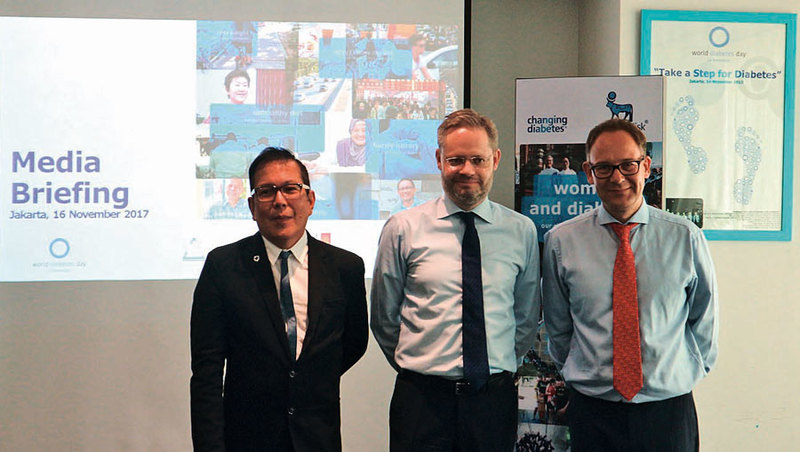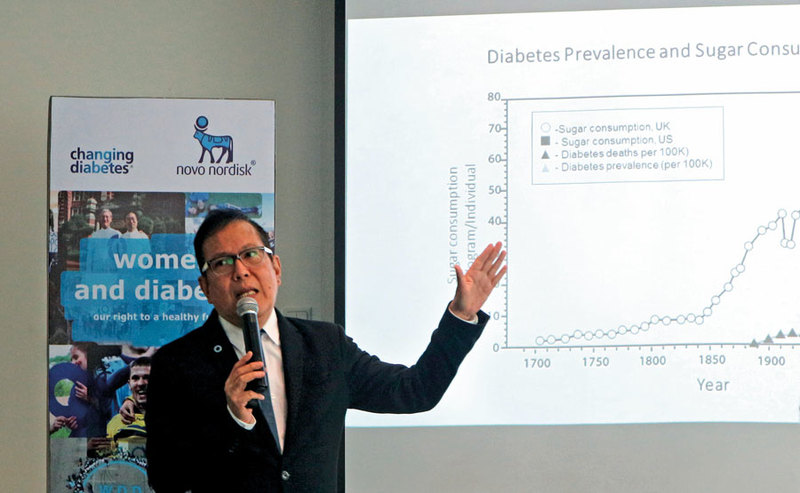In light of World Diabetes Day on November 14, leading global healthcare company Novo Nordisk in cooperation with International Diabetes Federation (IDF), Indonesia Diabetes Association (PERSADIA) and the Embassy of Denmark recently held an event to shine a light on access to diabetes care and promote an end to the problem of diabetes among Indonesian women.

Under the theme of “Women and Diabetes – Our Right to A Healthy Future”, with an emphasis on gestational diabetes, the event featured several speakers: Danish Ambassador to Indonesia HE Rasmus Abildgaard Kristensen; Morten Vaupel, President & General Manager of PT Novo Nordisk Indonesia and Dr. Roy Panusunan Sibarani, a renowned endocrinologist.
Speaking at the forum, Dr. Roy Panusunan Sibarani warned of the lack of awareness and knowledge among Indonesians about the dangers of diabetes and how to seek treatment. It’s no surprise that Indonesia is listed among top 10 countries with the highest number diabetics in the world.
According to the eighth edition of the Diabetes Atlas, published by the International Diabetes Federation, there are currently 199 million women around the world who are living in diabetes. The number is projected to rise to 313 million by 2040, placing diabetes as the ninth leading cause of death in women globally, causing 2.1 million deaths each year.
Moreover, two out of every five women with diabetes are of reproductive age, accounting for over 60 million women worldwide. Women with diabetes have more difficulty conceiving and may have poor pregnancy outcomes. Without pre-conception planning, type 1 and type 2 diabetes can result in a significantly higher risk of maternal and child mortality and morbidity.
Approximately one in seven births is affected by gestational diabetes (GDM), a severe and neglected threat to maternal and child health. Many women with GDM experience pregnancy-related complications, including high blood pressure, large birth weight babies and obstructed labour. A significant number of women with GDM also go on to develop Type 2 diabetes, resulting in further healthcare complications and costs.

Due to socioeconomic limitations, girls and women with diabetes often experience barriers in accessing cost-effective diabetes prevention, early detection, diagnosis, treatment and care, particularly in developing countries. It is socioeconomic inequalities that exposes women to the main risk factors of diabetes, including poor diet and nutrition, physical inactivity, tobacco consumption and harmful use of alcohol.
In doing its part, the Denmark-based Novo Nordisk is promoting the importance of affordable and equitable access for all women – those at risk for or living with diabetes – to essential medicine and technologies, self-management education and information on how to prevent Type 2 diabetes. The event itself is reflective of the company’s commitment to prioritise prevention and treatment for diabetes through education and consistent communication with patients and health practitioners.
Stigmatisation and discrimination faced by people with diabetes are particularly pronounced for girls and women, who carry a double burden of discrimination because of their health status and the inequalities in male-dominated societies, which can discourage girls and women from seeking diagnosis and treatment, thus preventing them from achieving positive health outcomes.
One way to start fighting diabetes is by embracing a healthier lifestyle and switching to better eating habits – something that can and ought to start within each family.







